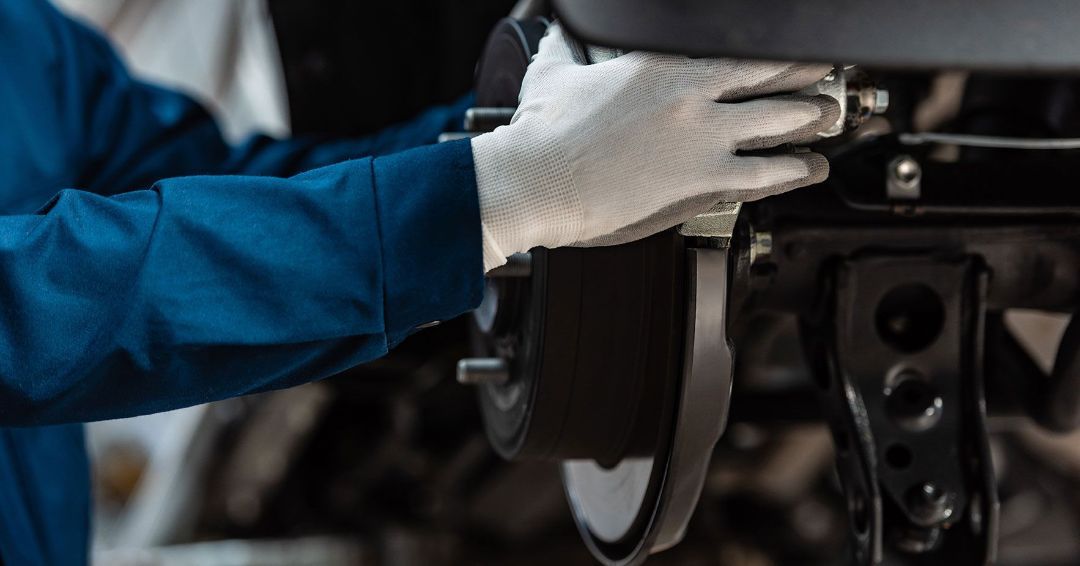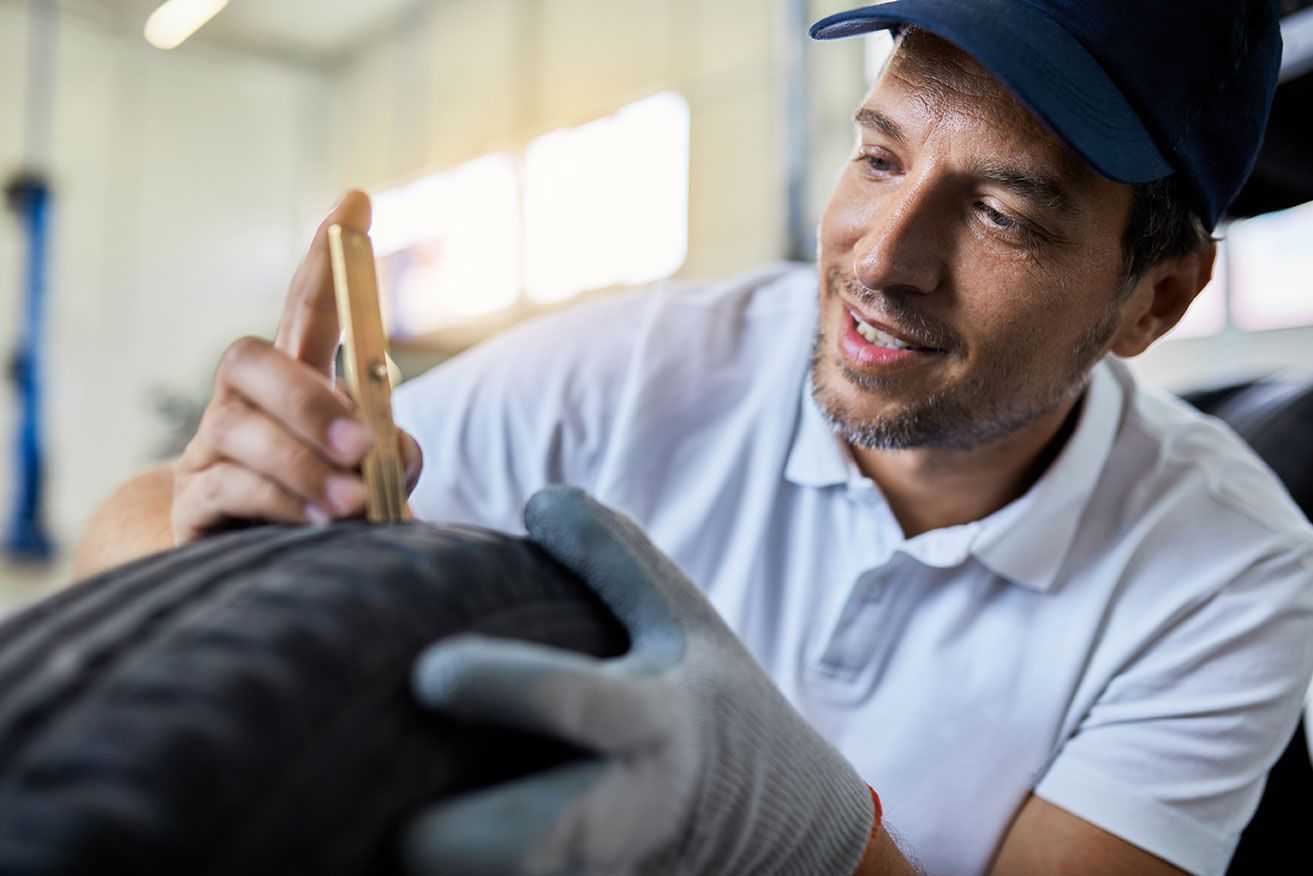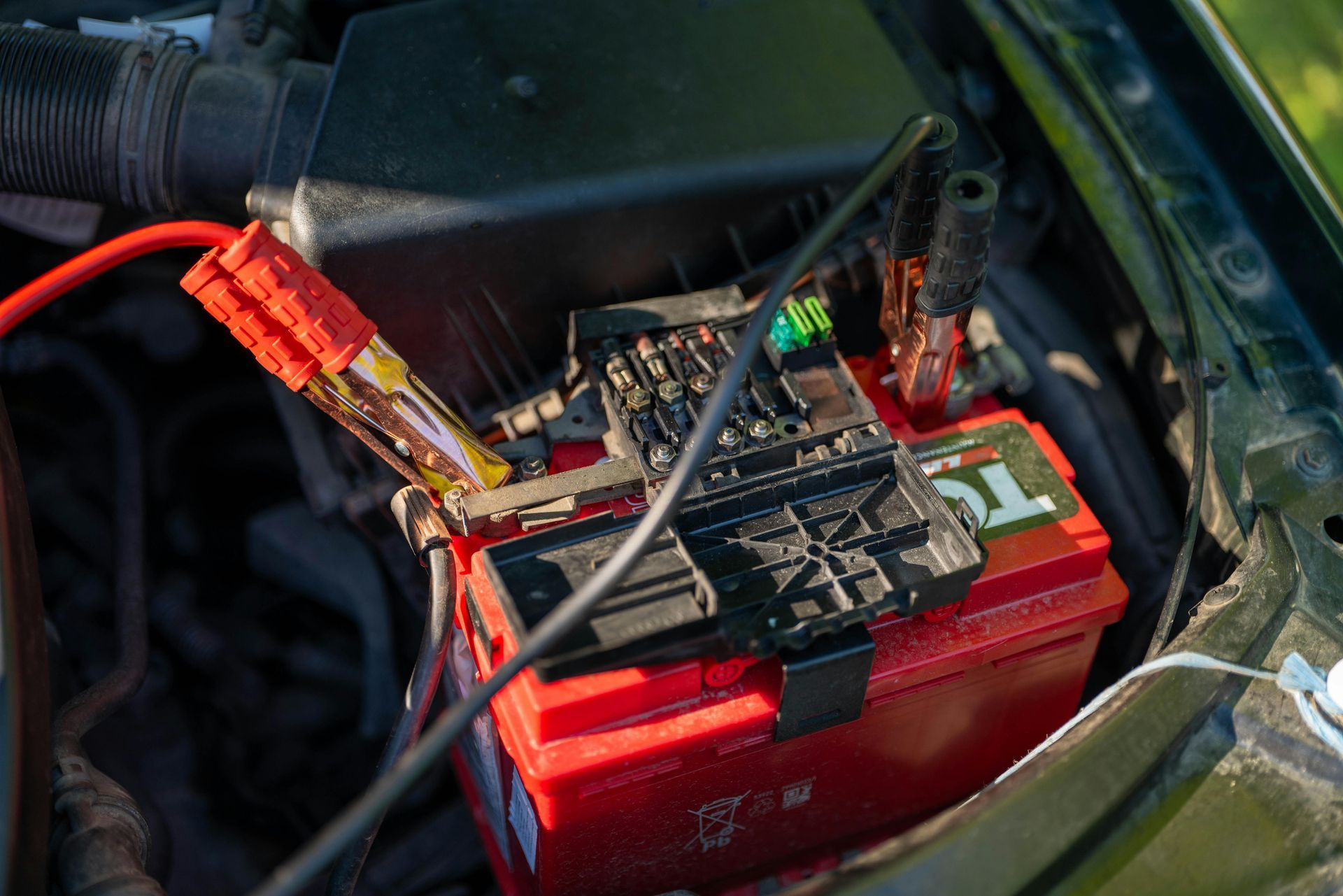3 Signs Your Brakes Need Service
Auto Shops Located in: Chapel Hill, Durham, Taleigh, Apex, and Cary North Carolina

Having the ability to slow and stop your vehicle on the road is not an option. Your brakes are necessary for keeping you and others safe, making it essential you give them the care they need to properly function. Here is a closer look at how brakes work and signs that they need service.
How Do Brakes Work?
While you might not give your brakes a second thought, they play an astonishing role in the driving experience. Your brakes control a large, heavy vehicle moving at rapid speeds to a slowed pace or a complete stop with just a little bit of time and slight pressure from your foot. To understand brake issues, it is important to first understand how your braking system works to make this happen.
When you press the brake pedal, the master cylinder begins to release hydraulic fluid (often just called brake fluid) into the calipers (or wheel cylinders). The hydraulic fluid amplifies the pressure of your foot, giving you the power to slow and stop your vehicle. Your brake system is also designed to use leverage to amplify this pressure.
This causes the brake calipers to lower your brake pads to the rotors (or discs), where they apply the pressure you need to stop. The friction material on your brake pads absorbs the heat and pressure of this exchange to safely slow the moving rotors. Each time you brake, moderate amounts of this friction material wears away, which is why your brake pads need to be replaced regularly.
Each of these systems is held together by several small parts, and each needs to be in proper function for your brakes to work as they should. So how do you know when it is time for brake service? Here are the top three signs.
Noisy Brakes – Why Are My Brakes Squeaking?
When your brakes begin to make a squeaky, grinding, or metallic sound, this means that they have worn through the friction material on your brake pads and are now rubbing directly against your rotors. This can begin to damage and bend your rotors, leading to a shaking steering wheel, ineffective stopping, and squeaky braking. Replacing both your brake pads and rotors are much more expensive than replacing just your brake pads, which is why it is important to get this service done before it can cause any damage.
Slow or Ineffective Braking
If you notice that your vehicle is not as effective when slowing or stopping as it used to be, this is a key sign you need brake service. The time it takes for your car to slow or stop can depend on your tire health, your vehicle size, the road conditions, the pressure you apply, your brake health, and more. However, the National Association of City Transportation Officials reports that the average vehicle is manufactured with the ability to make a complete stop within 120-140 feet when traveling at 60 mph. If you notice that it takes an extended amount of time or distance to make a complete stop, you may need new brake pads, brake fluid, or another type of brake service. Without proper service, you will leave yourself prone to accidents and safety hazards.
Brake Warning Light
When your brake warning light comes on, this is a clear sign that you may need service. Your brake light may be scheduled for routine notifications or actively monitoring and reporting issues with the health of your brakes. However, if your car is measuring your needed brake service by mileage, it may be inaccurate. If you drive long distances with minimal stopping, your brakes will experience less wear than a driver in the city, where traffic and lights cause frequent, heavy stops. If you heavily rely on your brakes, keep an eye on their wear, as you may need service before your warning system gives you a heads up. Here is our full guide to understanding when brake pad replacements are needed.
Popular Brake Services
While you might assume that a braking problem is a sign of a needed brake pad replacements, your braking system is a bit more complicated than that. Several different parts and systems are working together to safely slow and stop your vehicle. Here is a look at the common brake services that you may need to resolve your braking issues.
Front Brake Pad Replacement
Your front brake pads often take the hardest hits in your braking system, meaning that they require frequent care.
Rear Brake Pad Replacement
Depending on your vehicle type, your rear brake pads often do not work as hard as your front brake pads; however, they still are essential to your vehicle and need to be replaced regularly.
Brake Fluid Flush
Hydraulic fluid is needed to give your vehicle the power to stop. If your brake fluid has become worn or depleted, you may need a brake fluid flush.
Rotor Replacement
If you have a damaged or bent rotor, it will need to be replaced so that your brakes can safely stop your vehicle.
Brake Part Replacement or other services
When even a small part within your braking system becomes damaged, lost, or ineffective, it will need to be repaired or replaced. While these services are less commonly needed, you could have a problem with your master cylinder, brake lines, calipers, and more.
For a closer look at why your brakes are not working or what kind of service is needed, bring your vehicle in for an expert’s take.
Chapel Hill Tire Brake Service
If you a brake pad replacement, brake fluid, or any other brake service in Chapel Hill, Raleigh, Carrboro, or Durham, visit the experts at Chapel Hill Tire. Unlike other mechanics, we offer brake service coupons and transparent prices. Our experts will have you in, out, and on your way in no time. Make an appointment here online to get started with your Chapel Hill Tire brake service today!















